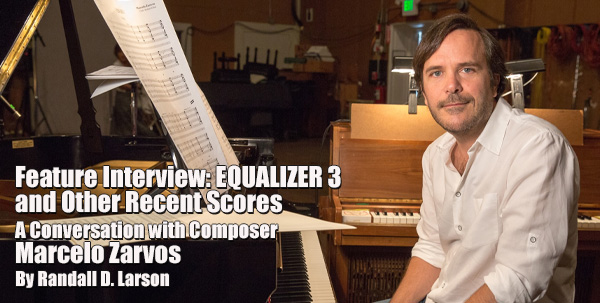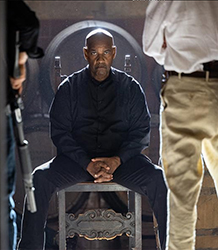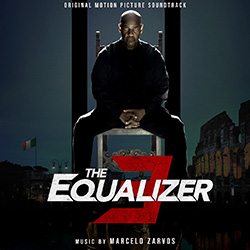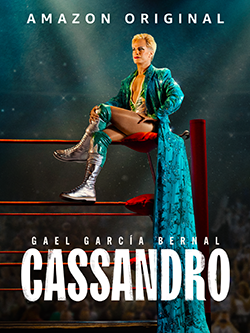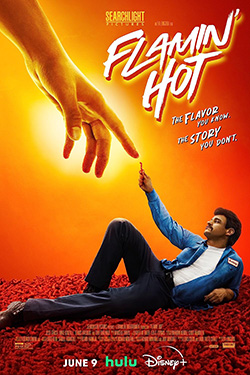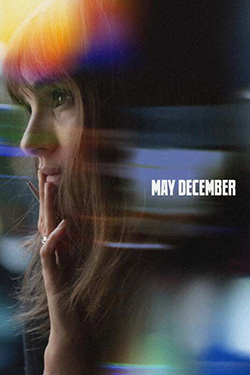
 |
||
|
Soundtrax September 22, 2023
Feature Interview:
EQUALIZER 3 and Other Recent Scores
A Conversation with Composer Marcelo Zarvos
Award-winning composer Marcelo Zarvos has composed the score for THE EQUALIZER 3. Zarvos’s sixth collaboration with director Antoine Fuqua follows on the director’s previous EQUALIZER films, loosely based on the 1980s TV series of the same title. Written by Richard Wenk, it stars Denzel Washington as Robert McCall, a vigilante hero. The films explore themes of justice, redemption, and the fight against evil. In the latest movie, since giving up his life as a government assassin, Robert McCall finds solace in serving justice on behalf of the oppressed. Now living in Southern Italy, he soon discovers local crime bosses control his new friends. As events turn deadly, McCall becomes their protector by taking on the mafia.
Zarvos has scored over 60 films of varied genres and musical styles, and his “expert touch for layered stories and emotive undertones” has been recognized by his collaborators and peers. This caught the attention of award-winning director Antoine Fuqua. Zarvos is recognized for his trademark sound, described as “a seamless blend of classical, orchestral, rock, electronic and various ethnic elements,” creating uniquely affecting and emotionally charged music for film, TV, modern dance, and the concert stage. The Brazilian-born Zarvos began his classical music education in his teens. He then left his home country to study at the Berklee College of Music in Boston and the California Institute of the Arts (CalArts). He studied jazz under the legendary Charlie Haden and delved into rock and world music.
Watch the trailer for EQUALIZER 3:
Q: What brought you to EQUALIZER 3? I know that Harry Gregson-Williams scored the first two films, but what prompted your reunion with Antoine Fuqua on this sequel?
Marcelo Zarvos: I’ve been working with Antoine on many different types of projects. We’ve always been collaborators; the last project we did together was EMANCIPATION (2022), and it went really well, and we both enjoyed working together. I’m a huge fan of Harry’s scores, both the previous EQUALIZER movies and many other projects, but I think Antoine wanted a different sound in this film. I think it had to do with the setting: the first two take place in Boston, and this one is in Italy, and there’s a fish-out-of-water element to the story, so I think he felt it would be advantageous to have another composer. I think he liked my lively sensibility as a boy from Brazil, so there might have been a little bit more of a Latin feeling to my music, which he identified and wanted to explore in this one.
Q: Coming on to the project, how did you begin emulating that kind of music for this film?
Marcelo Zarvos: We talked a lot about films we like and ideas of old stuff that we both like – old gangster movies or Westerns or Italian movies. We talked a lot about Kubrick. I knew he wanted something he identified as Italian in the film. There’s a lot of guitar that plays kind of a little bit of this role of something a little bit more Latin, a little bit more organic and earthy. And we just started, like we always do, writing sketches and showing him melodies to see what he reacts to and likes, and then we go through the whole thing and slowly build out the score together.
Q: How would you describe your central theme for the film and how it was used throughout the film?
Marcelo Zarvos: Well, there’s more than one main theme. There’s a melody of the story that is very much about getting under the skin of Robert McCall, Denzel Washington’s character, and how he was starting to get too close to the darkness by doing so much of the work that he does. He starts to enjoy it – and I think there was something very dark about the music and how the chords… almost like a kind of psychological horror, and what he was interested in was emphasizing the sort of monster element of McCall.
Q: With that in mind, how would you describe your overall instrumental palette for this score?
Marcelo Zarvos: Predominantly orchestral, but then with some additions of some very intense electronics and also percussion. We also used the Italian theme, which inspired me to use the bassoon in a very high register, so we have that instrument in many of the cues at the very beginning when we see him. I’ve always considered bassoon a shade of a melodic instrument, but then a lot of strings, piano, which was something Antoine wanted, how I used the piano in our scores, and dulcimer. We used a fair amount of dulcimer as well.
Q: How did you musically treat the series’ villains, whom Denzel’s character fights against, and put those together as the story goes along?
Marcelo Zarvos: The villain characters have had predominantly very low piano octaves and dulcimer together, and there is also more ostinato theme on the dulcimer and sometimes on the piano. The thing is, I would say that this film, the way that I think of it, I don’t think so much about character themes – this person is a character, that person is a character. I think I was more into dramatic pieces. What is the element of the drama in which the theme is presented? In this case, I would say there was a differentiation between the first part of the story, which is what happens to McCall and his demons, which have nothing to do with the inner monsters and the Italian mafia he’s fighting. And then there is the external threat, which is the mafia. Then there’s also what happens when he’s in action, and once he’s in full Equalizer mode, dispatching people. But I think a lot of this is almost about somebody who has this monster inside that is getting a little bit out of control, in a way; he’s trying to figure out if there’s a different path for him and struggles a lot with it. So there’s a lot of that emotional/spiritual struggle inside him.
Q: What were some of the standout musical moments for you in this project, and what was most challenging about scoring it?
Marcelo Zarvos: Probably… one of the standout moments, I’d say, toward the end when there’s a very long, like thirty-five/forty-five-minute piece when there’s sort of the demise of innocence, the villain, as they go through the climax, with one uninterrupted piece of music, very melodic, and very Italian in its way. I like the pensive piano music that happens when he’s figured out his bearings in the town, and also his sort of “monster” theme, which occurs at first when he’s shot at the beginning of the film, but later, at the alley, when he’s having one of the first dispatchings that he does in that part of the movie, and then he comes back in the final cue when they’re going around the town, but that was borne from a very, almost horror-like melody to something more perky and folky and Italian.
Q: I'd like to ask you about a few other recent scores you’ve done briefly. One of them is a biography called CASSANDRO. What brought you to that project, and what can you tell us about your score?
CASSANDRO (2023) follows the true story of Cassandro, the “exotico” character created by Saúl Armendáriz, the gay amateur wrestler from El Paso who rose to international stardom.
Marcelo Zarvos: CASSANDRO was a lot of fun. It was very unexpected; I came to it through two different collaborators who are very dear to me. One is Todd Black, who produced the EQUALIZER movie, EMANCIPATION, FENCES, and many other movies I’ve worked on. The other is the picture editor Affonso Gonçalves, who I’ve worked with many times, all the way back to DOOR IN THE FLOOR and a movie with Todd Haynes we did a couple of years ago called DARK WATERS. So they separately came to me, and that’s how I met the director, Roger Ross Williams. We talked a lot about film noir for this film, and obviously, there’s a Mexican element to the story. He was not that keen on finding too much of that element. Still, there’s something baked into Cassandro’s theme that is a little bit … this story takes place on the border, and he was more interested in this idea of a noir score. We talked a lot about the trumpet and his love of Miles Davis – we both share a passion for Miles Davis – so that lone trumpet sound was very attractive to him. It felt right in the first early cues in the movie where we hear Cassandro’s theme; he’s walking through the city by himself, and it had this kind of noir, searching vibe.
Q: Another recent bio you scored was FLAMING HOT for Eva Longoria. How did that come about, and how would you describe your score for this film?
FLAMING HOT (2023) is the inspiring true story of Richard Montañez, who, as a Frito Lay janitor, disrupted the food industry by channeling his Mexican heritage to turn Flamin’ Hot Cheetos from a snack into an iconic global pop culture phenomenon.
Marcelo Zarvos: It needed to have some Mexican identity in that one. I talked a lot with Eva about this; she wanted it to reflect and honor the Mexican-American experience, and it was explicitly Mexican-American because she was zeroing in on the culture of the people. It’s so important how Mexican culture has influenced and then being influenced by American culture and in the United States itself, particularly in Los Angeles, you have such a strong – and obviously it used to be part of Mexico at one point – the merging of the cultures, and I was honoring the Mexican side of it. I recorded many of the instrumentation and the themes with traditional musicians, experimented with melodies and harmonies and instrumentation, and recorded as we went. A lot of the time, you know, on these scores, we do demos and mockups and stuff, but for this, a lot of that stuff, all the percussion, the brass, was recorded immediately as I was writing it.
Q: Then there’s a comedy-drama, WHITE MEN CAN’T JUMP. How did that come about, and again, what was your musical approach to the project?
WHITE MEN CAN’T JUMP (2023) is a remake of the 1992 film about a pair of basketball hustlers who team up to earn extra cash.
Marcelo Zarvos: That one was – a lot of source music in there, and also some of the music that had been brought by another very talented writer named Oak Felder, who wrote some of the music closer to the source. I was doing more of the dramatic stuff, but sometimes you can. It borders into something a little dark percussive. This was a basketball story, and it had a lot of urban sounds and a lot of percussion. He wanted a very low-fi sound, so we used vintage pianos, electric pianos, organs, and things like that. Also, we had some strings and orchestral colors for some of the more emotional elements.
Q: What’s coming up next for you that you can talk about?
MAY DECEMBER: Twenty years after their notorious tabloid romance gripped the nation, a married couple buckles under the pressure when an actress arrives to do research for a film about their past.
Marcelo Zarvos: Next, I have a film coming up in December called MAY DECEMBER. It’s coming out on Netflix, and Todd Haynes directs it. It’s a very different animal because I was tasked with adapting the music of another composer, who’s no longer with us, the great Michel Legrand, from a score of his called THE GO-BETWEEN [1971]. And so the music, two-thirds of it is the score of THE GO-BETWEEN that I reorchestrated, rearranged, and performed again with a greater or lesser degree of changes, orchestration, and harmonies of form. And in about a third of it, I go to original music, which covers a different element, some of the more suspenseful aspects of the film. It was a different strategy, working with previous music. We treated it more or less like classical music because we treated it like a piece of, like Handel on BARRY LYNDON, where there’s a powerful theme, and then the theme was deconstructed and used in many different ways. That was more or less how we did it. I was tasked with rearranging and rerecording his music, then doing some of my own. It was very challenging but also quite fun. Todd Haynes is one of my favorite directors, and I’ll jump at any chance to work with him.
Q: What did your musical palette turn out to be when you were doing your own music as opposed to working with the Legrand music?
Marcelo Zarvos: Some of it was orchestral like the Legrand was very orchestral with baroque-sounding music, but a little French Legrand-Baroque. I was taking a lot of liberties but still had a baroque feeling to it, so some of the music I wrote used a delicate orchestral palette, a formal kind of thing, and then some of them were more electronic and ambient. All these angular pieces are primarily electronic. Sometimes we added electronics to the Legrand and made it more mysterious. He wanted my music and his music to influence each other in a particular area. The Legrand was re-performed and re-imagined, and then a lot of piano. I played a lot of piano in it, both my stuff and the Legrand, and for some of the orchestral things I used the same band that was used in the Legrand score and wrote some original pieces.___________________________________________________________________________________________
Randall D. Larson was for many years publisher of CinemaScore: The Film Music Journal, senior editor for Soundtrack Magazine, and a film music columnist for Cinefantastique magazine. A specialist on horror film music, he is the author of Musique Fantastique: 100+ Years of Fantasy, Science Fiction & Horror Film Music, and Music from the House of Hammer. He currently writes articles on film music and sf/horror cinema, and has written liner notes on more than 300 soundtrack CDs. He can be contacted via https://musiquefantastique.com/ or follow Musique Fantastique on Facebook. Follow Randall on Twitter at https://twitter.com/randalldlarson and https://twitter.com/MusiqueFantast1
